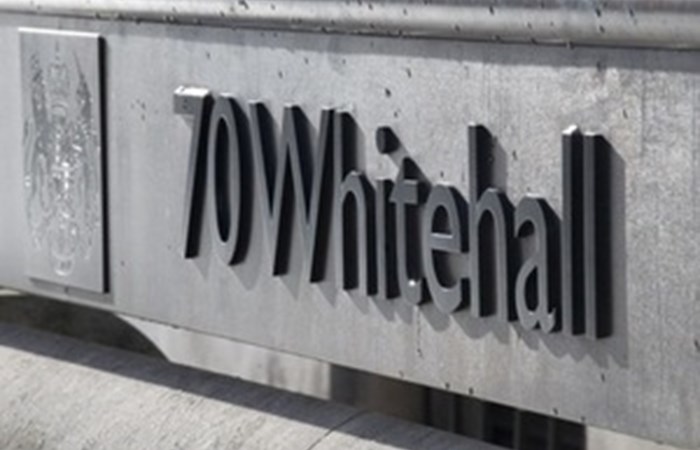Civil Service Fast Stream

The Minister for Cabinet Office and Paymaster General, Matt Hancock, has announced that the government will develop a ground-breaking new national standard set of measures of socio-economic background, which will be used to measure and so manage social mobility in the Civil Service and beyond.
Unlike many other measures of diversity, there is no agreed way of measuring socio-economic background between employers.
Following a meeting with key business leaders this week, dozens of major employers have agreed to work with the government to create new national common measures which will help to boost social mobility in workplaces across the UK, in both the public and private sectors.
Deloitte, Accenture, O2, Linklaters, KPMG, Barclays, EY, Baker & McKenzie, Grant Thornton, Teach First and the independent Bridge Group have already committed to working with us on this important development. Over 150 further businesses have now been invited to contribute.
It will be the first time that employers in the UK have developed a common set of national standards to measure socio-economic background.
Draft measures could include:
- what postcode an individual lived in at the age of 14
- whether they received free school meals
- their parents professions
Speaking at a careers event at St Thomas More School in Haringey, north London, Matt Hancock said:
Social justice is at the heart of everything this one nation government is trying to achieve. Our goal is simple: to make sure everyone has the opportunity to succeed and make the most of their talents, whatever the circumstances of their birth.
Its time to tackle the last workplace taboo social mobility. The British dont like to discuss things like their parents background, particularly at work. But you cant manage what you cant measure.
The Civil Service is determined to lead the way on social mobility, which is why we are going to work with major private sector employers to develop a national measure for social mobility so we can take action and break down barriers to employment.
The Civil Service is planning to begin using the new measures in the next 12 months, and the government will urge businesses and the rest of the public sector to follow suit.
The Minister has also today called upon civil servants to devote an hour every year to visiting a school and talking to pupils about their ambitions, and their route into a career.
This could operate through schemes such as Inspiring the Future, run by the Education and Employment Task Force charity, which help arrange school visits to introduce young people to the world of work.
The Cabinet Office has also announced a new Fast Stream assessment centre in Newcastle, to further open up the north of the country to potential employees.
Sam Clark, UK and Ireland HR Director at Accenture, said:
The culture change required to enable people from all walks of life to flourish and reach the top is an ongoing journey. There are lessons we can learn from other areas, such as gender, than can help us secure more rapid change.
At Accenture, we have embedded social mobility into our core recruiting practices, not just because it is the right thing to do, but because we want to secure the very best talent for our business.
Melanie Richards, Vice Chairman at KPMG LLP commenting on Matt Hancocks announcement, said:
We are absolutely delighted that the Cabinet Office, in partnership with the Bridge Group, are consulting the business community to develop a standardised national set of measures for employers to assess socio-economic background. KPMG collects a wide range of socio-economic data on its applicants.
For a number of years we have been working with the Bridge Group who have rigorously analysed our data to understand the effect socio-economic status can have on the recruitment pipeline and have developed analytical tools to help us better target and attract more diverse candidates.
KPMG welcomes the opportunity to work alongside the Cabinet Office, the Bridge Group, and other employers to standardise best practice, generate a more robust evidence base, and to encourage transparency.
Simon Branigan, Partner, Linklaters, said:
The consultation provides a common set of measures that will enable organisations across the UK to work towards the goal of ensuring that all doors are open and ready to recruit talented people from all social backgrounds.
Collaboration is key to success and Linklaters is already feeling the benefits of working with government and other businesses as Social Mobility Business Compact Champions. We have an established apprenticeship programme, and have made great progress in improving our outreach and recruitment processes to ensure that we identify talent and potential, rather than privilege a
